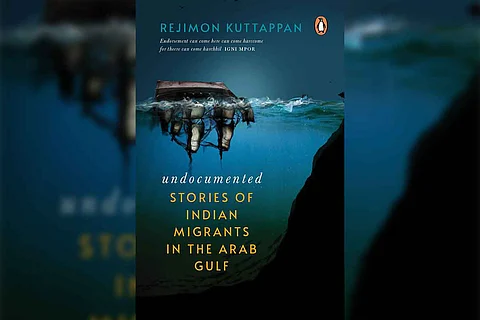

‘Getting a job for an undocumented worker is quite hard in Oman. People are afraid of taking risks. So, nobody will hire an undocumented domestic worker. And it was a risk for me, too . . . . Eventually, I had no job nor money,’ Jumaila said. She had been in this pathetic situation for nine months now.
While she continued to tell her story, I ordered falafels, a deep-fried ball of patty made from ground chickpeas and fava beans. We were in a Keralite cafeteria. So, we got a Keralite falafel, not the real Arabic one. She seemed hungry. She had four falafels at one go. She didn’t even bother to dip it in the yoghurt. While eating the falafel, she told me about her arrival in Oman and her life there.
She had come to Oman in 1998 when she was eighteen years old. An Arab from Oman, who claimed to be a sheikh, met her father and expressed his interest in marrying Jumaila. ‘He claimed that he has a big farm and tons of money. My father was quite impressed. Hurriedly, I was married off to him and sent to Oman,’ Jumaila said, cursing the moment her father took the decision. ‘Why am I cursed like this? Nothing good happens in my life. Why was I given such a life, only to suffer? I am only thirty-one years old, but I have already gone through a lot of suffering.
‘I was only eighteen and he was above fifty when we got married. I had become an orphan. My father believed that even if there was an age difference, I would be free from financial problems and safe in my husband’s house,’ Jumaila added.
It was an Arabi Kalyanam (Arabi marriage). In Kerala, Arab marriages have been, almost exclusively, a Kozhikode practice. Even centuries ago, Arab merchants used to find wives here when they had to stay for long intervals.
However, things began degenerating in the past few decades, when Kerala witnessed a Gulf boom and increased interaction with the Arab countries. More than the rich dhow-owning Arab businessmen lugging off timber and spices from these coasts, every deck-hand, khalasi, and menial worker in Arab gear began to find young girls here, mostly for a month or so, before their ship would weigh anchor for yet another port of call. Then the other visiting Arabs, lured by the tales, would fly in for cheap but legitimate sex.
The girls, invariably, in their teens, were available aplenty thanks to the huge dowry and other demands on their parents from local grooms. Besides, the imagined mystiques of Arabian riches were hard to resist. When the period of lust is over, the Arabs return to Arabia, offering the girls and their families some money and household items. Unfortunately, only a few take the girls along with them.
Jumaila was the lucky one who got the chance to accompany the Arab sheikh. But her luck ended on the day of arrival Itself.
The day she arrived at the Arab sheikh’s home, she found he had lied to her. His house was small. He was not a sheikh.
He was a security guard at a garage. He already had two wives and was the father of twelve children. The eldest one was in his thirties.
‘It was a very big family and we had little money, so most days we didn’t have enough food to eat. In addition to this, he used to abuse me a lot. I never complained to anybody. But I am also a human being. In 2009, I divorced him,’ she said.
Usually, men divorce women. But Jumaila was courageous enough to take the first step, to divorce her abusive husband. ‘The court in Oman was sympathetic to me. They heard my story and granted me a divorce,’ Jumaila said.
I was a bit surprised to hear how Jumaila was bold enough to fight for justice in a foreign country. By then, she had also delivered two boys.
‘I was unable to provide for their schooling, clothes, and food. I had to beg him for money. And whenever I asked for money, he would abuse me badly. He even tried to sell me. Many a time, it was sheer luck that I got away. Life was hell there. Hunger, mental abuse, physical violence, shame . . .’ Jumaila said.
She then continued, ‘I managed to live for ten years, somehow. But when he tried to sell me off to others for money and forced me to sleep with strangers, I left the house. I knew that the boys would not be thrown out. ‘I couldn’t even sleep peacefully in that house. Even during midnight, he would pull me from the bed and abuse me,’ Jumaila added.
Excerpted with permission from ‘Undocumented: Stories of Indian Migrants in the Arab Gulf’ by Rejimon Kuttappan. The book has been published by Penguin Books. You can buy the book here.